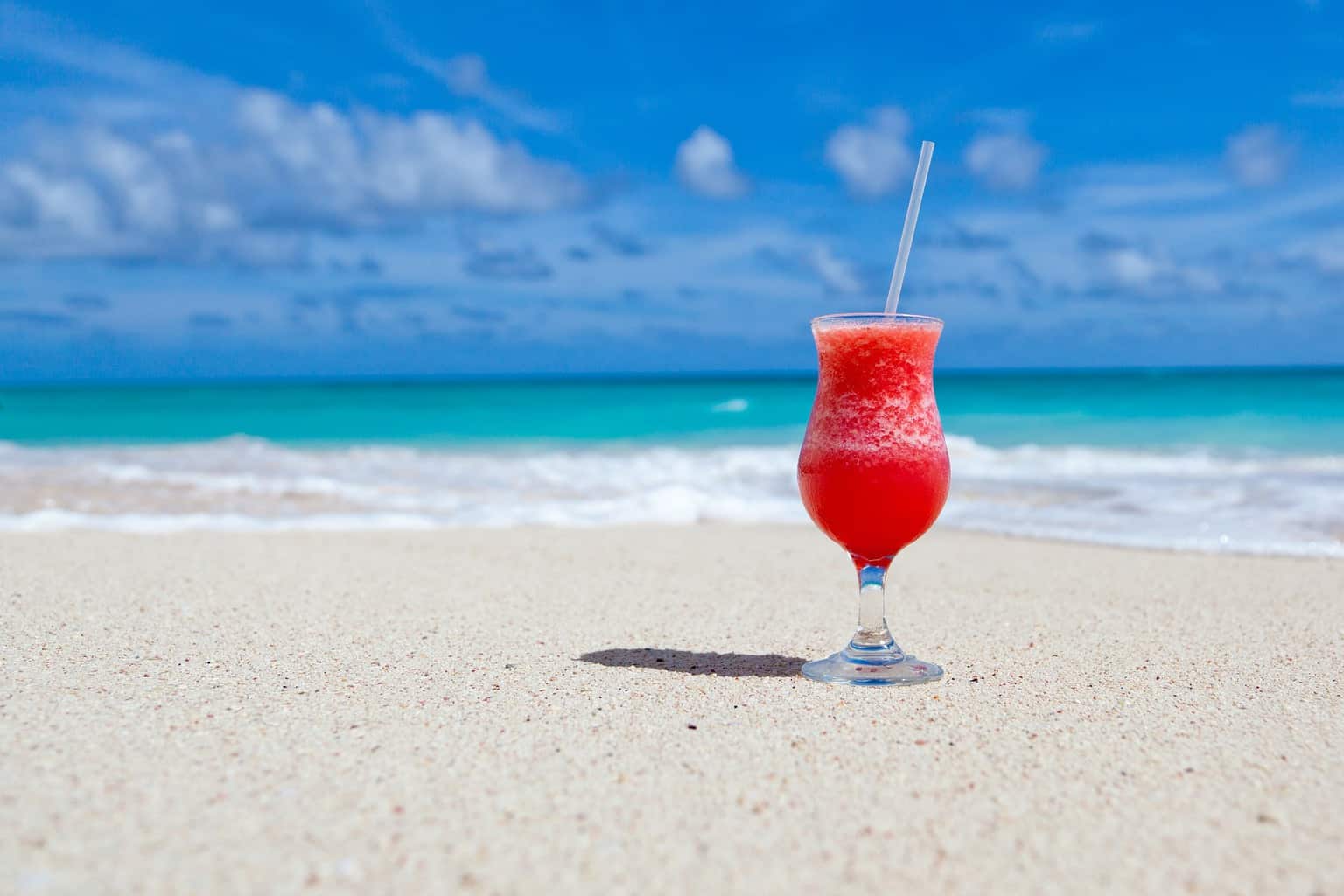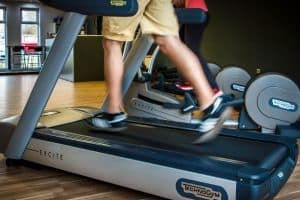- PhentermineLearn more about phentermine and how to get the most from your weight loss journey.
- ResourcesAdditional information and tools to help you make the most of your effort.
- AlternativesLearn more about the most popular weight loss medications and science-backed supplements
How to build muscle and lose fat while traveling
Published on December 11, 2024

Did you ever notice how chilling out or lounging on vacation makes you throw your diet right out the window? Out of nowhere, those extra pounds just sneak up on you (1). Yep, that annoying “vacation stress” is not just a figment of your imagination—it’s a real thing, and it’s sneaky about padding your waistline (2). Just like magic, all your hard work and sweat to look fab can vanish into thin air. If you dream of keeping that hard-earned beach bod all year long, you’ve hit the jackpot by being here. Stick with me, and I’ll show you the ropes.
On the contrary, vacation is indeed a great opportunity when you should both enjoy and recharge batteries for your new job challenges, and lose some weight. Yes, you’ve heard well! Vacation is not the reason to release all the brakes and thus accumulate unwanted pounds that will take you many time to get rid of them.
How to stay in shape while traveling
You probably asked yourself: “How to stay fit while traveling?”. If so, and if you are planning your trip or traveling about a few days, stay with us and learn more on different and interesting ways of staying fit while traveling.
To sum it up before we give you the details, stay active on your vacation and enjoy healthy snacks. If so, you won’t have to worry about excess pounds, and you’ll go back to your home in better shape than when you had left. Here’s a handful of practical tips for a healthy vacation mode that will help you enjoy a variety of delicacies rather than getting fatigued and gaining weight.
1. Getting ready for the trip
If you are preparing yourself for a longer trip, taking your own food with you is a very good idea. This will help you avoid eating food at the airports, petrol stations or various rest areas. Why is this important? First of all, food in such places is not always safe. You can easily suffer from food poisoning (3). Also, even if the food is safe for the locals, it might be dangerous for you, especially if you are traveling to far countries. This is the consequence of different water quality, climate, and different microbiological image your body is simply not used to.
Secondly, the food at airports is usually very expensive. Taking your own food with you will save your budget.
Finally, knowing exactly what you eat will help you to control calorie intake during the day. Relying on airport food, petrol station, and on-road restaurants means you will eat high-calorie and nutritionally unattractive meals.
Therefore, a quality sandwich that you had prepared yourself from whole wheat bread, quality ham, with plenty of vegetables, is a much better choice than any kind of fast-food, fried meal along the road.
Tips:
- Make several different sandwiches with ingredients that don’t get spoiled easily.
- Wrap each sandwich separately.
- If you can use zip bags, that’s the best solution for traveling!
2. Explore the neighborhood ahead
As we have already pointed out, good preparation is half of the work you may need to do! We assume that you do know where you will be traveling at least a week or three to four days in advance. Also, you probably know where you will be accommodated.
You can make simple research over the internet for a store that offers a quality assortment of healthy, organic food. Also, you can check in advance what restaurants in your neighborhood are offering healthy food menus. This will certainly make it easier to maintain your desired weight and help you avoid any negative consequences of eating sandwiches and fast food being offered at cheap prices, almost everywhere.
3. Ordering food in a restaurant
When you find yourself in a restaurant that offers your favorite food, it is easy to give in to all those attractive, fried, good-looking, and high-calorie meals (4). However, you may wish to know that only several days of eating at such restaurants can lead to several extra pounds.
Therefore, here are a couple of tips to help you:
- Choose low-grease and low-fat meat or grilled fish and avoid all meals fried in oil.
- Choose many vegetables and salads that are spiced only with a little bit of olive oil and vinegar, pomegranate juice, or “Aceto
- balsamico” (a type of vinegar).
- Don’t order additional items like roasted or fried potatoes. Instead, order another portion of salad.
- Try to avoid appetizers and desserts. However, you can pick only one of them at a time.
- If you had a nice breakfast, let your lunch be lighter.
4. Don’t be shy when ordering your food
Do not hesitate to look for what you need. When you order food in a hotel or restaurants, say clearly and loudly what you want. Ask for a salad prepared specially for you, with an extra ingredient, or without some ingredients that can make you gain some weight. Ask for mashed potatoes and some chili peppers instead of a full meal with cream sauces, fried potatoes, and unhealthy supplements.
Avoid fried foods by all means. If any dish on the menu contains fried food (this means that it is prepared in many vegetable oil or some other unhealthy fat), ask the waiter if they can prepare you the same meal, but grilled. For example, you can ask for grilled vegetables or grilled chicken. There is no reason for you to be shy about your questions. Most restaurants want their clients to be happy.
These were the basic tips on how to stay fit while traveling when it comes to ordering food in a restaurant for lunch or dinner. Now, let’s warn you about the drinks.
5. Drinking
When you’re on your vacation, it is easy to forget about the weight loss rules and enjoy your time to its maximum. However, be sure you’ll gain some weight if you don’t control yourself regarding the drinks.
Be very careful when it comes to alcohol. Drink in moderate amounts. Don’t forget that beer and alcohol, in general, comes with many calories. As a matter of fact, alcohol provides a surprisingly high amount of calories and almost no nutrients (5). It also stimulates your appetite and contributes to excessive relaxation. As a result, it can ruin your determination to exercise, have an enjoyable and exciting physical activity, such as sports, running on the beach, etc. Also, alcohol will challenge your decision not to exaggerate in the amount of food you consume.
Tips:
- Drink alcohol only with food and restrict yourself to only one glass of wine for lunch or dinner.
- Drink plenty of water and hydrate yourself all the time, especially if you are traveling to hot climates. You can also drink tea, coffee and natural juices, such as lemonade instead of alcohol.
6. Be careful with snacks
One of the golden rules of our how to stay fit while traveling guide refers to the worst evil of them all – snacks. Chips and various other snacks that we almost cannot resist once we start eating them can contain many fat, salt, and plenty of calories (6). Therefore, we must consume them cautiously and very moderately. This can be very tricky when you are on your vacation. However, keep your spirits up and don’t give in to this contagious temptation!
Tips:
- Always have some fruits and a few almonds with you. As a result, you will forget about the unhealthy snacks and you will not be too hungry until your next big meal.
- The fruit is an ideal substitute for a high-calorie ice cream or a delicious dough packed with fat and calories.
7. Be active
Use your vacation as an ideal opportunity for exercising and achieving top form (7). One to two hours of walking a day by the seaside or in a forest, depending on your vacation, will provide your body with a lot more than mere pleasure itself. You will not only prevent gaining weight, but you will even lose weight and build some muscles on your vacation.
Bicycle is an ideal means of transport on the seaside and walking can be a good form of physical activity and give you a great mental and physical boost. Only half an hour of fast walking or riding a bicycle can burn about 200 calories!
Except for these usual ways of staying active on your vacation, you can make up some creative ways of your own. If you are staying near the beach, wake up at the sunrise and practice some yoga next to the sea. This will recharge not only your muscles and tendons, but also your mind and soul. You will feel ready for all the activities waiting for you during the day.
Moreover, there are many simple tips regarding your physical activity on your vacation that you can benefit from.
Always use the stairs instead of elevators. This can be an enjoyable experience if you are climbing a tower, for example, the Eiffel Tower in Paris! You will enjoy views from different points and heights which people taking an elevator won’t have a chance to discover.
When swimming, don’t focus only on the joy of the water surrounding every pore of your skin. Focus on increasing your cardio activity by swimming at least 10 minutes at a high tempo, without making a break.
Benefit from the facilities in your accommodation (hotel, resort). Most places to stay nowadays offer some kind of physical activity facilities. It can be a gym, a swimming pool, or an outdoor running and exercising facility. Don’t be lazy and exercise at least three times a week.
8. Do not skip meals
Whether you are on a day-long or on a very long trip, on a beach, a business trip, or in the mountains, it’s easy to lose track of time and accidentally skip your meal, or even two.
It may seem harmless, but skipping meals can easily lead to too many calories in the next meal. Also, you are slowing your metabolism down even by skipping only one meal (8).
Therefore, don’t forget your meals or think about some quality, ready-made healthy alternatives, such as dried fruit, banana chips or organic, low-calorie wafers.
9. Never skip your breakfast
Skipping breakfast is never a good idea, regardless of your vacation. However, it is especially dangerous if you are traveling. Why? First of all, your body is already going through many changes, such as time zones, jet lags, change of climate, environment, and microbiological condition.
If you additionally attack it with lack of food, it will perceive this situation as a kind of a “war”. What will be the answer to your body? Slow metabolism. You definitely don’t want that on your vacation, as it will make you feel tired, constipated, and you will most probably gain some weight (9). Therefore, never skip your breakfast, even if you are in a hurry.
Tips:
- Your breakfast should be richer than other meals.
- You should eat diverse food rich in proteins, minerals, and vitamins.
- Ending your breakfast with a bit of carbohydrate is a good idea, as it will give you energy for the day.
- Consuming some honey at your breakfast is a good idea. It will boost your immune system and prevent sudden drops of sugar level in blood.
10. Drink enough water
Dehydrating on a vacation is so common that many people actually have to ask for professional medical help after a day or two of being careless about hydration. Lots of factors combined lead to an unpleasant condition when your body loses electrolytes and you start trembling, your heart starts beating in an irregular way, or you even faint.
This is especially true when it comes to long journeys where you want to avoid frequent stops to visit the toilet. That’s why you might avoid drinking water. Do not do it! It is much better to drink more water during your trip and stop to use the toilet, as it will help you cope with your unhealthy food offered at airports and gas stations. When your body is dehydrated, it is easy to replace the thirst for hunger and eat too much food.
Tips:
- Bring a few bottles of your own, bottled water (bought in your country/state), as you cannot predict how often you will have access to bottled water in the place you are traveling to.
- Always drink bottled water if you are traveling outside your country.
- Drink water in equal intervals, even if you don’t feel thirsty at that particular moment. In this way, you will definitely avoid dehydration.
- You can combine drinking natural water with some naturally carbonated water, as it contains ions important for the proper function of your heart (namely sodium and potassium). Otherwise, you might experience tremor or even faint.
- Increase the amount of water if you are going to engage in a demanding activity, such as trekking or hiking.
- Increase the amount of water if you are visiting a hot climate.
- Don’t drink many water in a single shot as this can shock your body and cause troubles with your blood pressure.
- Drinking enough water will also help you lose weight or at least prevent gaining weight while traveling (10). It also helps fight cellulite, so don’t be surprised if you return home with beautiful, radiant skin – it’s the water!
Conclusion
The answer to the “How to stay fit while traveling?” question is easy to answer if you are aware of the dangers of food prepared in popular vacation places and the basic principles of weight loss.
Some of the most important tips refer to eating regularly, preparing your own food for the trip itself (the airport, plane, bus, train, part of the trip), and knowing what you are ordering in a restaurant.
Also, don’t be shy to ask for a modified menu, with fewer calories, more salad, or less oil. In addition, stay away from unhealthy snacks and choose vegetables and fruit instead.
Drink many water and avoid alcohol as much as you can. Last but not least, make sure to stay active during your vacation. There are plenty of different options for some enjoyable physical activities when traveling.
References:
(1) https://www.ncbi.nlm.nih.gov/pmc/articles/PMC4336296/
(2) https://www.researchgate.net/publication/272144867_An_Exploratory_Study_of_Vacation_Stress
(3) https://scialert.net/abstract/?doi=pjn.2009.1218.1223
(4) https://www.researchgate.net/publication/309608146_Customer_perceptions_of_food_item_descriptions_on_online_resort_hotel_restaurant_dinner_menus
(5) https://www.ncbi.nlm.nih.gov/pmc/articles/PMC2837522/
(6) https://www.ncbi.nlm.nih.gov/pmc/articles/PMC5015032/
(7) https://www.ncbi.nlm.nih.gov/pmc/articles/PMC1402378/
(8) https://www.ncbi.nlm.nih.gov/pmc/articles/PMC4137466/
(9) https://www.ncbi.nlm.nih.gov/pmc/articles/PMC6352874/
(10) https://academic.oup.com/nutritionreviews/article/73/suppl_2/97/1930742


